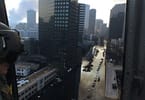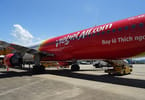ARUSHA, Tanzania (eTN) – Tanzania’s hunting industry, a sleeping economic giant, will be contributing an additional US$30 million to the economy per annum starting by 2013, thanks to new hunting rules.
The highly-lucrative sector expects to bring in US$53 million, up from US$20 million, a 37.7 percent increase, cementing its position as one of Tanzania’s largest foreign exchange earners.
Natural Resources and Tourism Minister, Ezekiel Maige, is keen to see the hunting industry make a more realistic contribution to national economic growth.
Banking on the new hunting rules, Mr. Maige is optimistic the potential industry will hit the US$52.787 million mark every year during the 2013-2018 hunting seasons – US$30 million more than the current US$19.795 million.
For instance, under the 2010 tourist hunting rules, the wildlife-rich country will see the hunting license fee for its prime hunting blocks soaring from US$27,000 to US$60,000 per annum.
The revised guidelines for the hunting industry also categorized the hunting blocks into five groups depending on the type and number of animals to be hunted.
Mr. Maige said category I has 24 blocks and their hunting permit fee will be US$60,000 each; group II with 98 blocks will have its hunting fee at US$30,000 a piece. Category III with 18 blocks, will attract a hunting license fee of US$18,000 each, and class IV and V with 8 hunting blocks each will generate permit fees of US$10,000 and US$5,000, respectively.
The categorization was done in accordance with a number of animals to be hunted, the hunting block’s size, and richeness of wildlife resources to qualify sustainable tourist hunting, as well as the diversity of animal species available.
Hunting block accessibility in terms of terrain and infrastructure from either the country’s commercial city of Dar es Salaam or safari capital of Arusha, along with a reliable water supply and the scope of human activities within the block are among factors taken into consideration.
Mr. Maige said in establishing a hunting block, the boundaries of the proposed blocks are clearly demarcated by Global Positioning System (GPS) according to their potential for wildlife recovery upon a given timeframe and investment.
Though the Minister is quiet on trophy fees, speculations have it that under the new structure, the trophy fees for hunting a lion are most likely to have been raised to US$12,000, up from just US$2,500.
Hunters may also be required to pay US$15,000 to kill an elephant in Tanzania from the previous fee of US$5,000, if unconfirmed reports are anything to go by.
But in the immediate aftermath of the government’s announcement, hunting block owners came up in arms against the new fee structure, describing the 500 percent fee increase as outrageous.
Of all the African hunting countries, Tanzania is without a doubt the one that most stimulates the imagination of hunters and non-hunters alike.
Tanzania has long been considered the ultimate hunting safari destination in Africa. Fulfilling the dream of a traditional big game hunting safari, the likes of which so many hunters have read about, continues to be a big draw to Tanzania’s unspoiled wilderness.
The East African country is home to a wide range of African wildlife and still allows the hunting of four of the famous Big Five species: elephant, lion, buffalo, and leopard.
And it’s no wonder – more than 60 species of animals in the country can be hunted on a tourist-hunting license.
Block’s Bond
Director of Wildlife Division, Erastus Tarimo, said applicants who are Tanzanians are required to produce a bank bond of guarantee to the tune of at least US$300,000 and for a foreign-owned hunting company must produce a bank bond of US$1,000,000 in case the applicant doesn’t have the required equipment, such as refrigerators and freezers, tents, generators, and other items.
In accordance with the Wildlife Conservation Act, Cap. 283, no person shall be considered for allocation of a hunting block unless she or he has a company intending to engage in the hunting of animals registered with the Registrar of companies within Tanzania.
Also the company should have at least one its directors with five years of experience in wildlife-based business and conservation in Tanzania and the shares of the company to be owned by the citizens shall be not less than twenty five percent of all subscribed shares.
Each application for allocation of a hunting block shall be submitted to the Director, together with a copy of the Memorandum and Articles of Association of the hunting company, a copy of the Certificate of Incorporation, TIN Certificate of VAT Registration number, and four passport-size photographs for all Directors and Shareholders.
Gloomy picture
Way back in 2008, the national assembly was informed that a dubious deal for the lease of hunting blocks, milked the country a staggering US$80 million annually.
Tabling a private motion in the House on hunting contracts, the former Kwela Member of Parliament, Dr. Chrissant Mzindakaya, claimed that professional and tourist hunting alone denies the treasury nearly US$60 million from fees paid by hunting firms regardless of the concentration of wildlife in the hunting blocks.
Dr. Mzindakaya was particularly concerned by the foreign hunting companies, accusing them of violating the rules and bribing bureaucrats to make hefty profits at the expense of Tanzania’s natural resources.
He termed the foreign hunting firms as looters of the country’s natural resources, because all foreign currencies they generated from professional hunters were deposited to their foreign bank accounts.
Mr. Mzindakaya said 12 foreign companies owned 57 prime hunting blocks with each one controlling nearly five compared to ten local companies that only own 16 hunting blocks in prime areas.
According to him, the unpredictable rules and regulations put by the country at a disadvantage when negotiating with the powerful hunting companies. He said all blocks are charged a fixed fee of US$27,000 regardless of their biodiversity, location, and infrastructure available.
“This is wrong because biodiversity based on number and variety of game species available in prime hunting blocks could be 10 or 20 times more valuable than open hunting blocks,” Dr. Mzindakaya told the 9th parliament.
He suggested that the fee for hunting blocks in wildlife rich Selous in southern Tanzania should be US$400,000 per block annually or US$2 million for five years.
Dr. Mzindakaya also charged that the hunting sector in Tanzania was operated in confidentiality and totally lacked transparency, as no information or data was made available to determine the scale and nature of the blocks and the industry as a whole.
WHAT TO TAKE AWAY FROM THIS ARTICLE:
- Director of Wildlife Division, Erastus Tarimo, said applicants who are Tanzanians are required to produce a bank bond of guarantee to the tune of at least US$300,000 and for a foreign-owned hunting company must produce a bank bond of US$1,000,000 in case the applicant doesn't have the required equipment, such as refrigerators and freezers, tents, generators, and other items.
- 283, no person shall be considered for allocation of a hunting block unless she or he has a company intending to engage in the hunting of animals registered with the Registrar of companies within Tanzania.
- Hunting block accessibility in terms of terrain and infrastructure from either the country's commercial city of Dar es Salaam or safari capital of Arusha, along with a reliable water supply and the scope of human activities within the block are among factors taken into consideration.






















